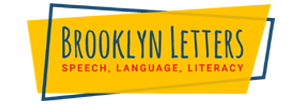The Power of Spelling Evaluation: Assessing Spelling Skills

When it comes to English, one of the most important aspects of good communication is spelling. While the English language is one of the most commonly spoken languages in the world, it is also one of the most difficult to master when it comes to spelling. Spelling evaluation is important in helping students and professionals of all levels understand the finer points of spelling in English. In this blog post, we will explore the importance of spelling evaluation and how it can help improve your written communication.
What is a Spelling Evaluation?
Spelling evaluation is the process of assessing an individual’s spelling proficiency and accuracy. It involves systematically examining an individual’s ability to spell words in written or oral form correctly. Spelling evaluation aims to identify the individual’s strengths and weaknesses in spelling, understand any patterns of errors, and determine the appropriate level of spelling instruction or intervention needed.
Who Needs to Undergo Spelling Evaluation?
Spelling evaluation can benefit individuals of various age groups and educational backgrounds. Here are some groups of people who may benefit from undergoing spelling evaluation:
- Students: Spelling evaluation is commonly conducted with students, particularly those in the early grades of elementary school. It helps identify spelling strengths and weaknesses, enables targeted instruction, and promotes the development of strong spelling skills. Students who struggle with spelling, exhibit persistent errors, or have difficulties with reading and writing may especially benefit from spelling evaluation.
- Individuals with Dyslexia or Specific Learning Disabilities: Spelling evaluation is crucial for individuals with dyslexia or specific learning disabilities that affect language processing. These individuals may face challenges in phonological awareness, decoding, and spelling. A comprehensive spelling evaluation can help determine the specific areas of difficulty and guide interventions tailored to their needs.
- English Language Learners: Spelling evaluation is valuable for individuals who are learning English as a second language. It assists in assessing their grasp of English spelling rules, phonetics, and vocabulary. Educators can provide targeted support by identifying spelling errors to enhance their spelling skills and promote language acquisition.
- Individuals Requiring Accommodations or Support: Spelling evaluation is essential for individuals requiring accommodations or specialized support in educational or professional settings. It helps establish the need for specific accommodations, such as extended time for tests or the use of assistive technology. Spelling evaluation ensures that individuals receive appropriate support to accurately demonstrate their knowledge and abilities.
- Anyone Seeking to Enhance Language Skills: Spelling evaluation is not limited to those with known difficulties but can benefit anyone seeking to improve their spelling and language skills. It provides a baseline assessment of spelling proficiency and guides individuals in setting goals and implementing effective strategies for self-improvement.
Components of a Standard Spelling Evaluation
A standard spelling evaluation comprises several components that collectively assess an individual’s spelling proficiency. These components are carefully designed to provide a comprehensive understanding of an individual’s spelling abilities, identify areas of strength and weakness, and guide targeted instruction. From spelling tests and dictation exercises to analyzing spelling errors and providing feedback, each component contributes to a thorough assessment of spelling skills. Educators and specialists can effectively evaluate spelling proficiency and implement appropriate strategies to support spelling development by incorporating these components.

Fundamentals of Spelling Evaluation
Whether you are an educator, language specialist, or a parent supporting a child’s language development, conducting a spelling evaluation can provide valuable insights and guide targeted instruction. Here are the fundamentals of spelling evaluation and practical steps to conduct an effective evaluation.
- Selecting Appropriate Word Lists: Start by selecting word lists that align with the individual’s age, grade level, and language abilities. Consider incorporating words that reflect different spelling patterns, phonetic variations, and vocabulary levels. Word lists can be curated from textbooks, spelling resources, or online platforms that provide grade-specific spelling materials.
- Assessing Spelling Accuracy: Evaluate an individual’s spelling accuracy by having them write down a designated set of words. This can be done through traditional paper-pencil tests, digital platforms, and spelling apps. The assessment should cover a range of difficulty levels to accurately gauge the individual’s spelling proficiency.
- Analyzing Errors: Carefully analyze the individual’s spelling errors to gain insights into their areas of weakness. Categorize the errors based on patterns, such as phonetic mistakes, incorrect application of spelling rules, or difficulty with specific letter combinations. Understanding these patterns will guide targeted instruction and intervention.
- Dictation Exercises: Dictation exercises provide a dynamic way to assess spelling skills. Read aloud a passage or a series of sentences, and have the individual write down what they hear. This evaluation method tests their ability to accurately transcribe spoken words, which reflects their understanding of word structures and phonetic patterns.
- Writing Samples and Portfolios: Collecting writing samples over time allows for a comprehensive assessment of spelling skills. Review the individual’s written work, highlighting spelling errors and identifying recurring patterns. Building a spelling portfolio helps track progress, identify persistent errors, and design targeted interventions accordingly.
- Time Constraints: Consider the impact of time constraints on spelling accuracy. Some individuals perform better when given additional time, allowing them to effectively reflect and apply spelling strategies. However, it is important to strike a balance, as spelling under timed conditions also reflects real-world scenarios where individuals must produce accurate written work within a given timeframe.
Conducting a Spelling Evaluation
- Prepare the Evaluation Materials: Gather the word lists, dictation passages, and any necessary evaluation forms or digital tools for administering the evaluation.
- Explain the Purpose: Clearly communicate the purpose of the spelling evaluation to the individual. Emphasize that it is an opportunity to assess their current spelling skills and identify areas for growth.
- Administer the Evaluation: Depending on the chosen methods (word lists, dictation exercises, or a combination), administer the evaluation, ensuring clear instructions and providing any necessary support or clarifications.
- Analyze the Results: Review the individual’s responses, noting spelling accuracy, error patterns, and areas of strength and weakness. Identify common errors and patterns that require targeted instruction.
- Provide Feedback: Share the evaluation results with the individual, focusing on their achievements and areas for improvement. Provide constructive feedback and offer specific strategies and resources to enhance their spelling skills.
- Plan Targeted Instruction: Based on the evaluation results, design a tailored plan for instruction and intervention. Incorporate activities, exercises, and resources that address the individual’s spelling difficulties and promote their growth and development.
Why Spelling Evaluation Matters
- Reading Comprehension: Spelling and reading skills are interconnected. Proficient spelling facilitates stronger reading comprehension by promoting word recognition and decoding abilities. Individuals who struggle with spelling may face difficulty recognizing words, which can hinder their reading comprehension. Addressing spelling difficulties through evaluation can unlock the door to improved reading skills.
- Written Communication: Spelling proficiency plays a pivotal role in effective written communication. Correctly spelled words convey meaning clearly and prevent misunderstandings. Spelling evaluation identifies areas where individuals may struggle, enabling them to enhance their writing skills and express themselves more confidently.
- Language Mastery: Spelling evaluation provides insights into an individual’s grasp of language. Accurate spelling reflects a deep understanding of phonetics, vocabulary, grammar, and word structure. Identifying areas of weakness through spelling evaluation helps pinpoint specific language components that require attention and improvement.
Benefits of Spelling Evaluation
- Targeted Instruction: Spelling evaluation provides a roadmap for targeted instruction. By assessing an individual’s spelling abilities, educators and language specialists can tailor instruction to address specific areas of weakness. This personalized approach ensures that individuals receive the support they need to develop strong spelling skills.
- Phonological Awareness: Spelling evaluation can shed light on an individual’s phonological awareness—the ability to recognize and manipulate sounds within words. Spelling difficulties often arise from challenges in understanding the relationship between sounds and letters. Educators can provide targeted phonics instruction by identifying phonological weaknesses, improving spelling accuracy, and reinforcing overall language skills.
- Vocabulary Development: Evaluating spelling proficiency reveals an individual’s vocabulary knowledge. By recognizing words that are misspelled or frequently misspelled, educators can identify gaps in vocabulary and create opportunities for expanding word knowledge. This fosters improved reading comprehension, enriched writing abilities, and enhanced communication skills.
- Building Confidence: Effective spelling evaluation considers an individual’s strengths and areas for improvement. Educators can boost learners’ self-confidence by acknowledging progress and providing constructive feedback. A positive and supportive approach motivates individuals to persist in their spelling practice, leading to increased proficiency and greater achievement.

Conclusion
Spelling evaluation is crucial in assessing an individual’s spelling skills and guiding targeted instruction. A standard spelling evaluation provides valuable insights into an individual’s spelling proficiency by incorporating components such as spelling lists, written tests, dictation exercises, word usage assessment, and analysis of spelling errors.
The importance of spelling evaluation lies in its ability to identify areas of weakness, track progress over time, and guide personalized instruction. It allows educators, language specialists, and learning specialists to design tailored interventions that address specific spelling difficulties, such as phonemic awareness, spelling rules, vocabulary knowledge, and application of spelling strategies.
A learning specialist can play a vital role in the spelling evaluation process. They possess expertise in assessing learning needs, identifying patterns of errors, and developing individualized plans for intervention. A learning specialist can administer the spelling evaluation, analyze the results, and provide meaningful feedback to individuals and their support network.
Contact us today to meet our literacy specialists who could travel to your home.
Chat with Us Today!
Our Literacy Specialists work on decoding, encoding (spelling), reading comprehension, and writing skills.
FREE CONSULTATION!!!
Call: (347) 394-3485, Text: (917) 426-8880
Email: [email protected]
(we respond to email right away!)
Craig Selinger
Latest posts by Craig Selinger (see all)
- NYC Middle School Transition Support Group - April 7, 2024
- Understanding Toddler Neurodevelopmental Evaluation - April 3, 2024
- Rare Diseases in New York City - February 29, 2024













